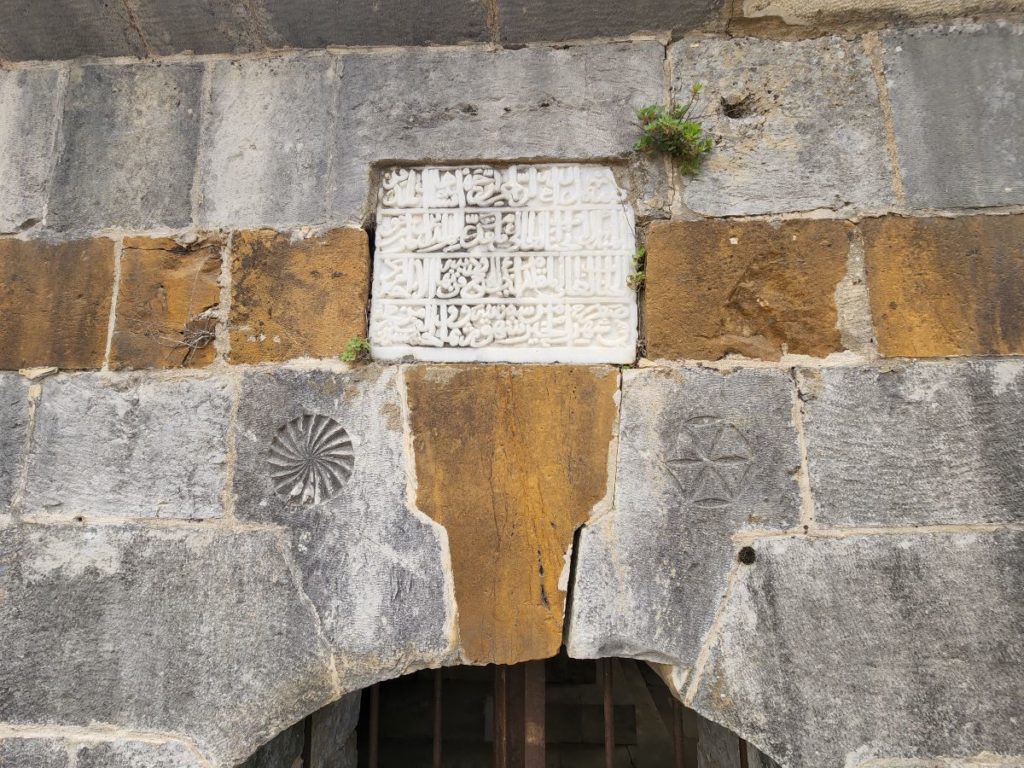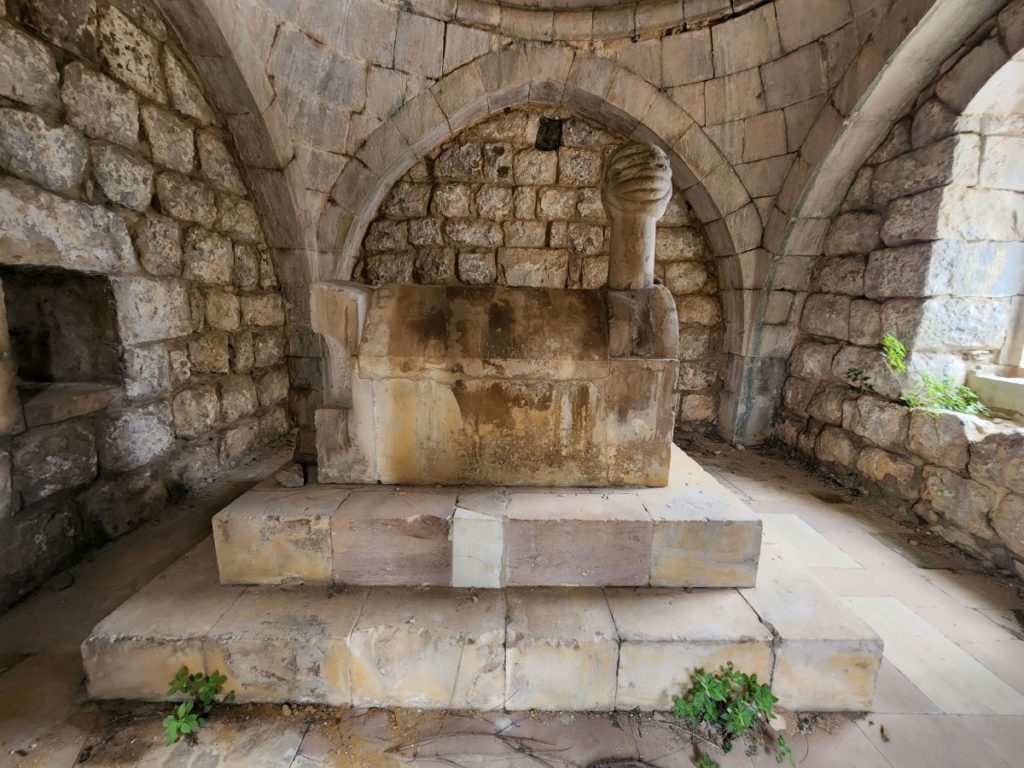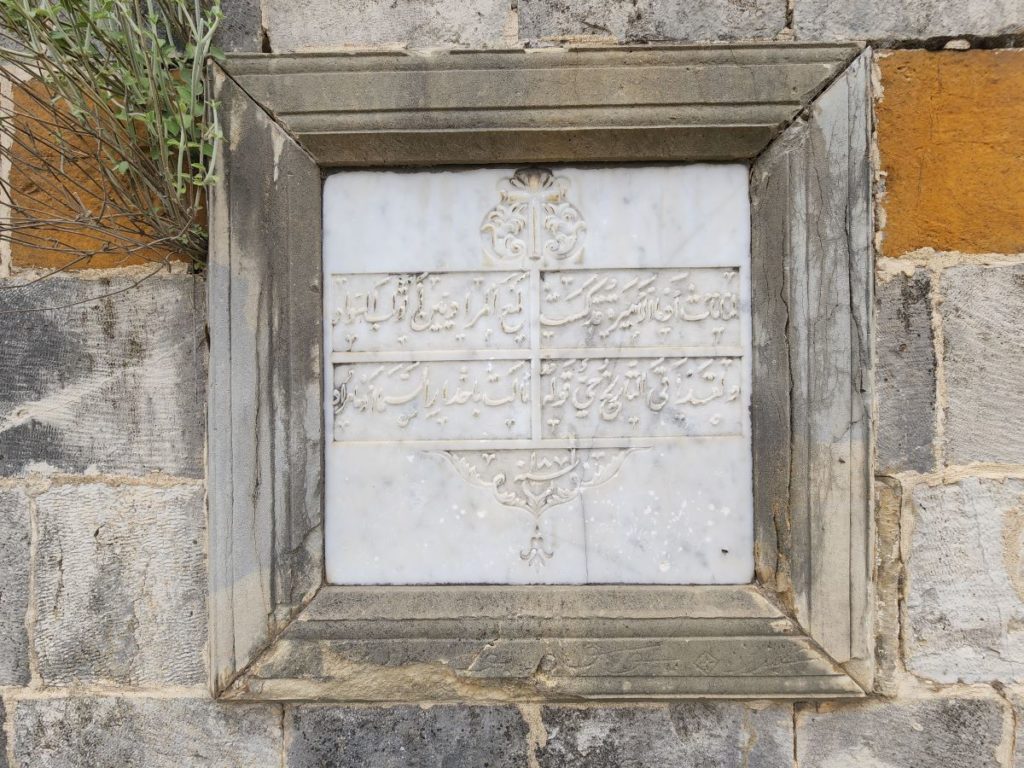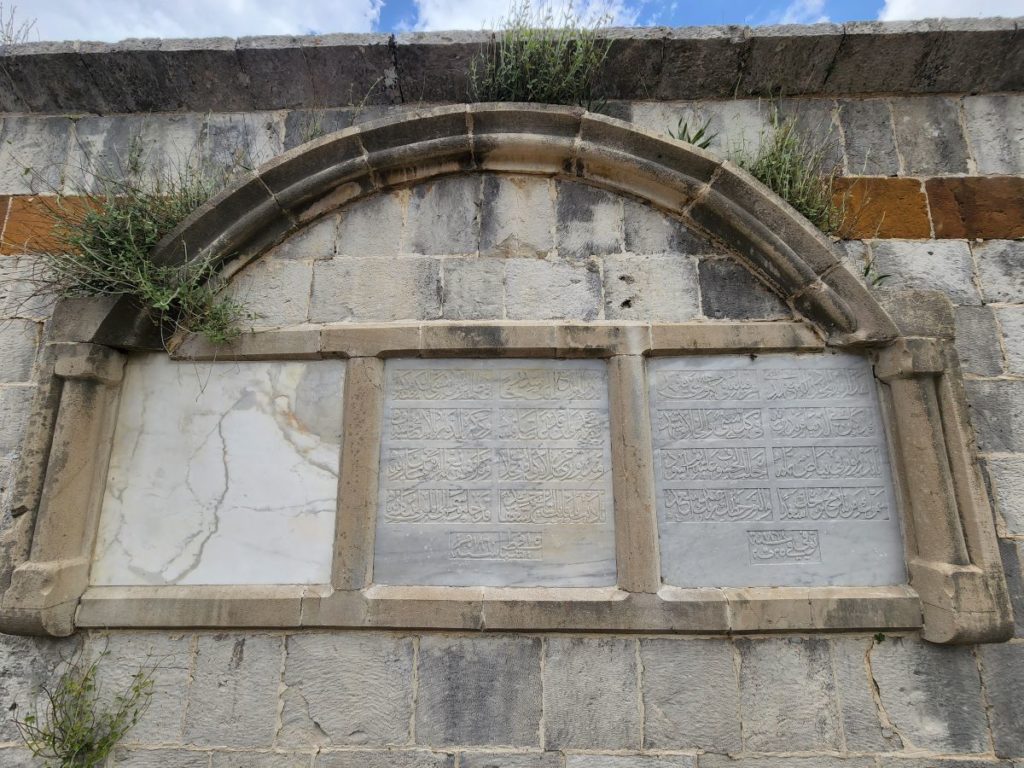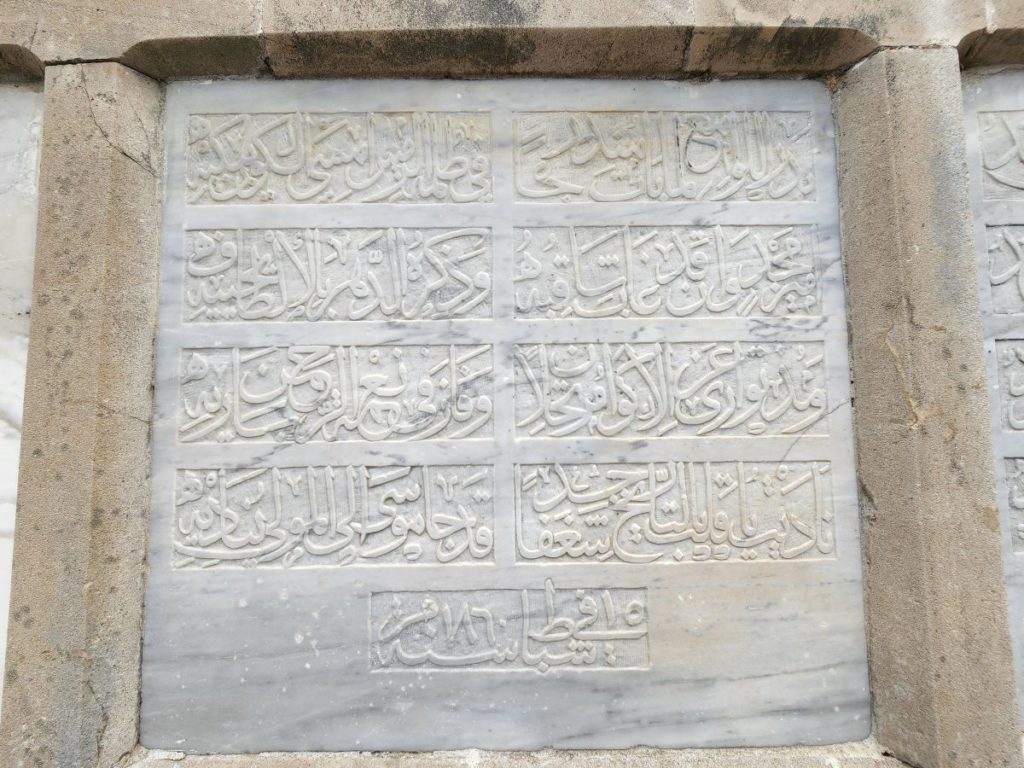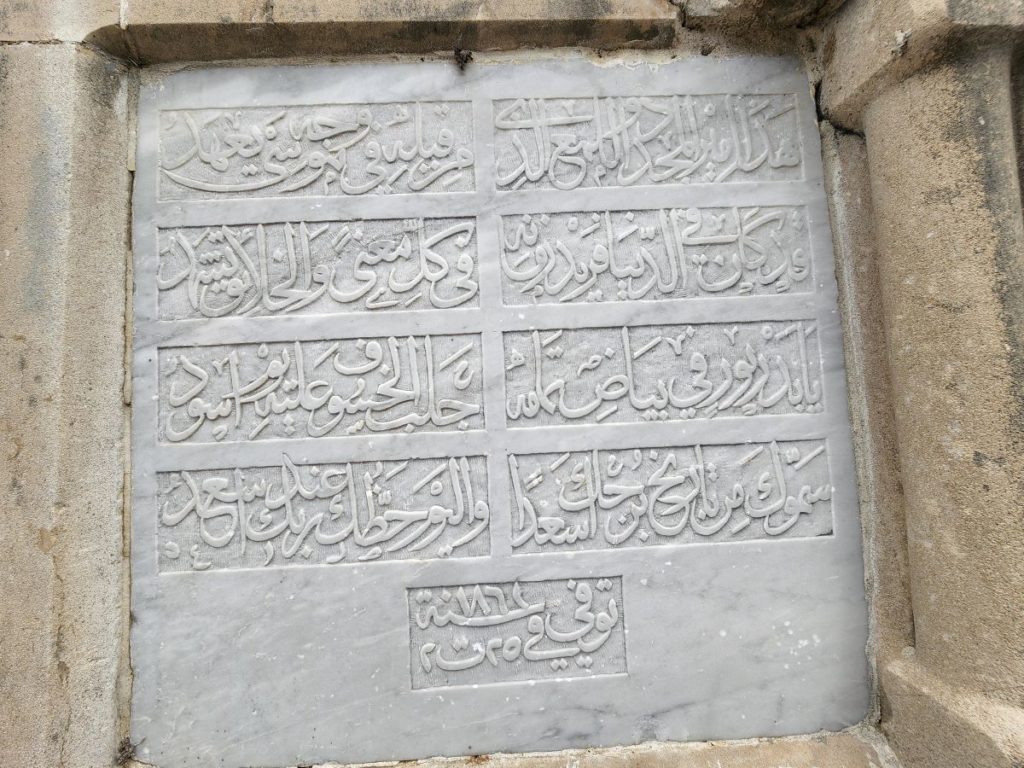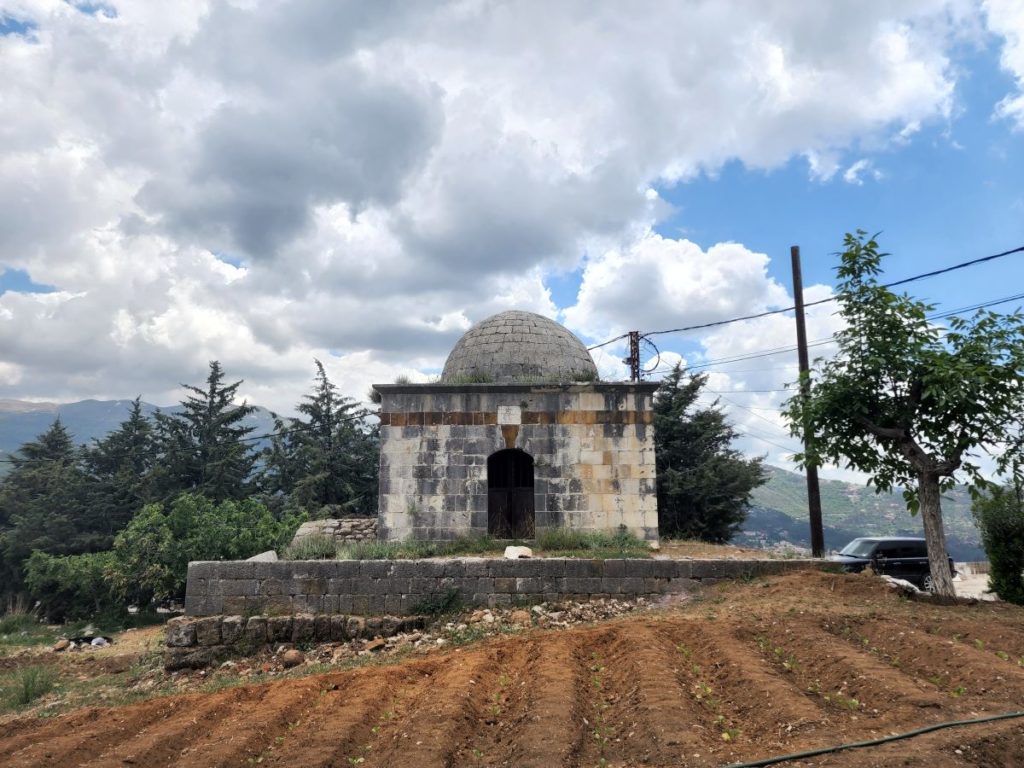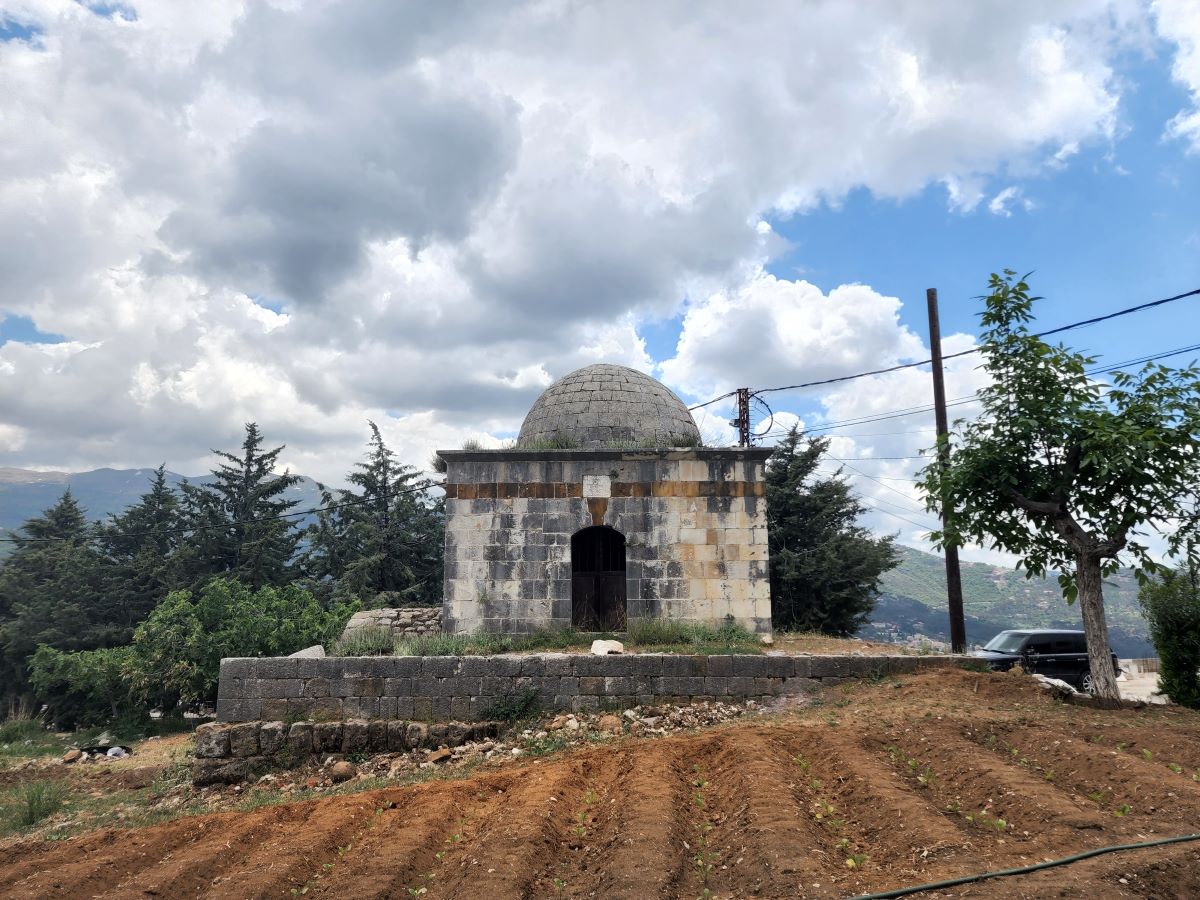El Mtein village features one of the oldest Ottoman era monuments of the Matn district – the 17th century mausoleum of Muqaddam Aalam El Dine Abillama, where he and some of his descendents are buried.
Structure
Resting on a large podium, the mausoleum is a square structure surmounted by a dome and crossed by a thin horizontal strip of ocher stone which lightens the four blue walls.
Esoteric symbols are represented above the single door of the mausoleum. The first is a sun wheel with multiple rays enclosed in a circle, and the second is the same six-pointed star, the keystone of the dome.
Above the entrance, an inscription in four lines is engraved on a white marble slab. It mentions that the mausoleum was built by the Muqaddam Aalam El Dine Abillama during his lifetime. The date of his death is indicated according to the Hijri calendar, 1058, which corresponds to 1648 Christian era.
On the southern side, two marble slabs are dedicated to Asaad and Majd Abillama, two emirs descendents of the Muqaddam, but unlike him they were Christians.
On the eastern side, a marble slab is dedicated to Empress Edna, also a Christian; the mason engraved at the bottom of the slab’s frame the inscription “غير درزي” (Non Druze).
A vaulted gallery, the upper part of which slightly exceeds the level of the podium, leads to a second sepulchral chamber dug under the tomb of the Muqaddam. It is probably there that the three princes were buried.
Inside, the tomb of the Druze muqaddam rests in an elegant marble sarcophagus raised by two steps and oriented towards the south. One of its sides is surmounted by a strange sculpture, similar to a long neck at the end of which is a skull, or a sculpted turban, characteristic of Druze funerary art in the Lebanese mountains during the Ottoman era.
The skull, or turban, is girded with a strap which enclosesit obliquely and meets in the middle.
Inscriptions
The inscription above the main door reads the following:
بسم الله الرحمن الرحيم انشا هذا المدفن
المبارك الجناب العالي المقدم علم الدين المرحوم
الجناب العالي أبي اللمع ودفن به نهارالأحد الفرد
في شهر صفر الخيرمن شهور سنة ثمانية والخميس والف من الهجر
“In the name of God, gracious and merciful, built this tomb
Blessed his High Excellency the late Muqaddam Aalam El Dine
His High Excellency Abi Alamaa, who was buried there on Sunday the first day
Of the month of Safar, the best month of the year one thousand and fifty eight of the Hegira”
The two inscriptions of Emir Majd and Asaad Abillama:
هذا أمير المجد ذواللمع الذي
من قبله في وجه موسى يعهد
قد كان في الدنيا فريد زمانه
في كل معنى والخلائق تشهد
يا بدر نور في بياض تمامه
جلب الخسوف عليه يوم أسود
سموك من تاريخ برجك أسعداً
و اليوم حظك عند ربك أسعد
توفي سنة ٢٥ تش ٢سنة ١٨٦١
This is the prince of glory with the brilliance that
Before him in the face of Moses is entrusted
He was in the world unique in his time
In every sense and creatures witness
Full moon in perfect white
The eclipse brought him a black day
Your Highness from the history of your horoscope is the happiest
And today your luck with your Lord is happier
He died on the 25th of Nov in the year 1861
بدر اللوامع لما بات مندرجاً
في ظلمة الرهب أمسى الكون يبكيه
أمير مجد وان قدغاب شاقبه
وذكره الدهر بالألطاف يحيبه
ومذ توارى عن الأكوان مرتحلاً
وفاز في نعمة الرحمن باريه
ناديت يا قلب بالتاريخ جد شغفاً
قد جاءه موسى إلى المولى يناديه
في ١٥ شباط من سنة١٩٨٠
The full moon of the Abillama when it descended
In the darkness of terror the universe cried
Emir of glory (Majd) even if his shadow was lost
Eternity will always remind of his great qualities
And since he evaded the universes as a traveler
He enjoyed the grace of the merciful his creator
I called (to) my heart (telling him) comfort yourself since in history
Moses came to call him to the Master, his creator
On February 15, 1980
The inscription of Empress Edna:
لما ماتت أذنا الأميرة قد كست
لمع المارديين أثواب السواد
ولقد أتى التاريخ “حي قوله
“نالت باحذار السما أدنا مراد
١٨٧١
At her death Empress Edna covered the brilliance of the Mourads with black clothes
The word of the story came true she had warnings from the sky the closest desire (mourad)
1871
Karim Sokhn
Tour Operator & Tour Guide
References
Les Abillama, emirs du Metn, Histoire et palais, XIIIe-XIX siecles
